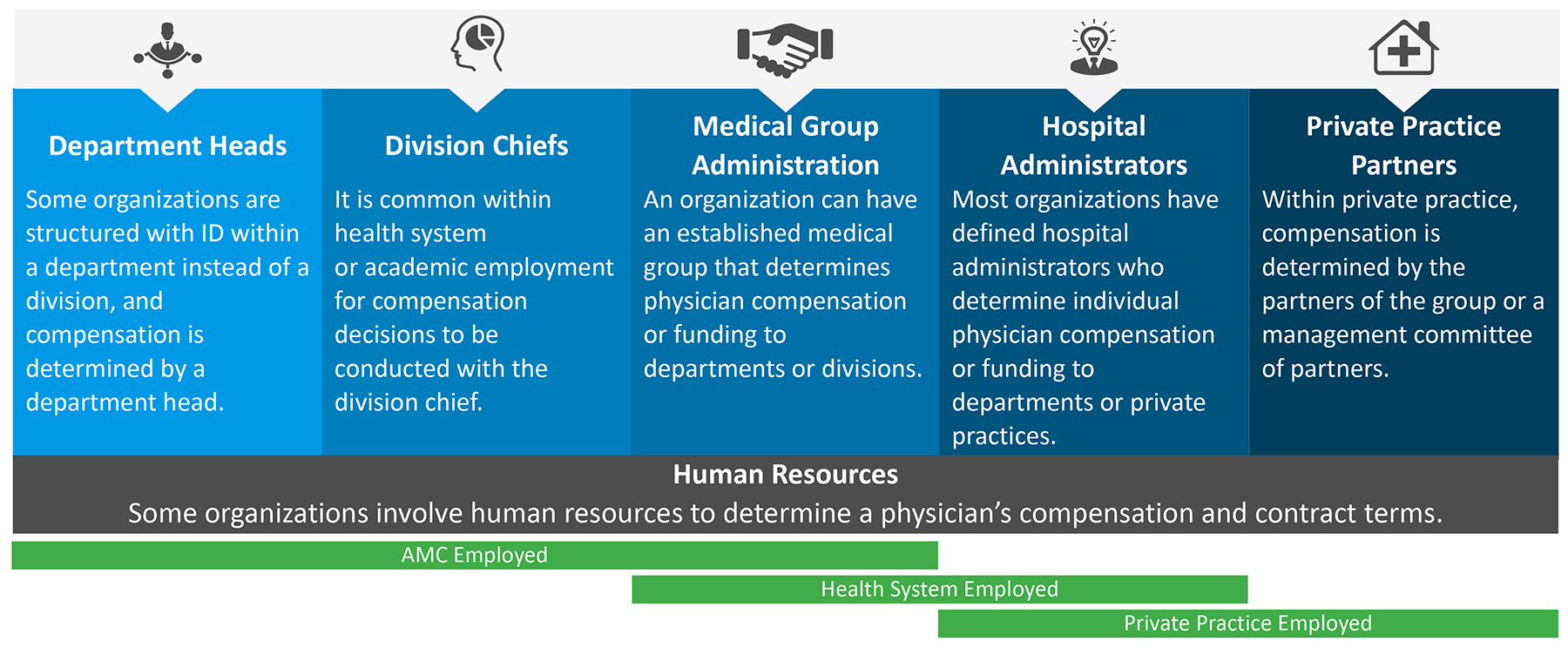

Previous Page
${prev-page}
Next Page
${next-page}
Please Tell Us What You Think

Thank you for your interest in the Physician Compensation Negotiation Playbook. Please complete this short survey to let us know what you think. Your feedback is instrumental in helping to shape future versions of this and other educational resources being developed as part of IDSA’s Physician Compensation Initiative.
The survey should take only 5 minutes to complete.
Open Survey
Negotiation Process
Negotiation Process
B. COMPENSATION DECISION-MAKERS
Figure 8 details the common compensation decision-makers that physicians will encounter based on their employment setting.

FIGURE 8: Compensation Decision-Makers
C. NEGOTIATION TACTICS
A successful negotiation is determined by the amount of preparation a physician commits to before interacting with the compensation decision-maker. The list below includes factors that should be considered prior to a negotiation.
• Determine the goal of the negotiation.
• Identify a specific concern(s) to address.
◦ A multivariable negotiation allows for several levers that could be adjusted when discussing alternatives with an employer.
◦ Below are some examples to consider when identifying your own concerns.
• Define all responsibilities and the associated effort/time to perform each responsibility.
• Determine the source of funding for each current responsibility that was defined (as possible).
• Determine if there is adequate time to successfully meet all expected responsibilities.
• If employed at an AMC, identify any protected time that is allocated to assist with advancement in academic rank.
• If involved in strategic projects that promote an institutional goal, determine if there is any monetary compensation if the goal is achieved.
• If representing the institution locally, nationally or internationally, determine if there is compensation or protected time that can be established for the effort.
• Explore the ability to include in the contract the specific responsibilities and associated allocated time that can be revisited annually for possible adjustments in compensation when effort changes.
• Understand any processes or procedures that are established at the organization regarding compensation negotiations.
• Know how your experience and credentials align with the needs of your employer.
Articulate why you deserve the change in compensation.
• Utilize published benchmarks to demonstrate how you compare to peers (e.g., geography, subspecialization, academic rank).
• Consider alternatives that could be proposed.
• Consider the employer’s perspective.
• Consider possible constraints the employer will raise.
• Be willing to compromise.
• Build trust and avoid emotional confrontation.
• Never make or accept the initial offer.